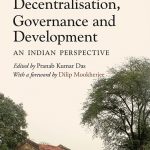
The Power of Open
29 September 2011
On Tuesday, September 20th 2011, President Obama formally launched the Open Government Partnership or OGP (see link1 and link2). The Partnership, led by a steering committee of Governments and civil society organizations is a multilateral initiative to support governments to promote transparency, fight corruption and strengthen accountability. At the launch 8 countries – Brazil, Mexico, the United States, the United Kingdom, Philippines, Indonesia, Norway, South Africa – drew up a road map for strengthening transparency, citizen engagement and accountability. In fact, a leading civil society activist from Tanzania –Rakesh Rajani spoke at the high table during the launch. It was really very exciting to see a friend and fellow traveler speak at the event! Interestingly, India despite being a pioneer in this area is not a partner in this initiative. However, Indian civil society was well represented at a day-long discussion called the ‘Power of Open’ organized by the steering committee to mark the formal launch of the OGP- I was there representing Accountability Initiative as was Swati Ramanathan of Janaagraha along with Nikhil Dey from the Mazdoor Kisan Shakti Sangathan who is a member of the steering committee. As I sat through the proceedings, I was struck by how the idea of open government is being closely linked to information and communication technology (ICT). Most governments have chosen to interpret the idea of ‘open government’ to mean the use of technology to collect data and monitor government processes. This interpretation is of course not surprising, considering that technology has unleashed new ways of collecting and disseminating data in ways that were unthinkable even a decade ago. As a practitioner and someone who actively uses data sets made available through the use of technology, I can hardly argue against its use. But I do wonder whether we run the risk of over emphasizing technology at the expense of much needed structural reform that might take the idea of open government further (Global Integrity has a really interesting blog on the subject).
I see this happening in India all the time. Governments in India have been quick to deploy technology solutions to deal with the accountability problem. A few months ago on a trip to Andhra Pradesh I learnt that Mandal level program officers (APO), the key officials implementing MGRNEGA at the lowest administrative unit level, have been given a subsidized mobile phone with GPS technology. Every week, a computerized program sends an SMS alert to the mobile phone with a list of worksites (randomly selected through a computer program) that the APO is expected to monitor. To ensure that the APO undertakes these monitoring visits his movements are tracked through GPS technology. The district level MGNREGA officials are expected to use this information to hold the APO to account. In another instance, the Government of Uttar Pradesh has used Interactive Voice Response System technology to introduce a monitoring system for Mid-Day Meals. This experiment is now going to be rolled out across the country (watch out for a very interesting field note on the subject which should be available on our website early next week). In another interesting experiment, the Government of Chhattisgarh is using GIS technologies to monitor the movement of food grains as they travel to various collection points in the state. The list is endless. It is, as my colleague Salimah Samji says, the era of ‘E-Raj’ in India. The benefits of E-Raj are obvious and from the point of view of a reformer, it is often the only available option. Technology solutions are difficult to oppose; after all they are markers of modernization and tie in neatly with the India Shining narrative. Thus they are relatively easy to push through the system.
But I worry that the emphasis on E-Raj has obscured the real discussion. That we need to use GPRS technology to monitor movements of frontline staff is indicative of a deep structural problem in the organization of the bureaucracy today – it is a question of incentives and motivation, of the power dynamic within the bureaucratic hierarchy and of the relationship between the frontline worker and citizens. Resolving this problem requires much more than introducing technology. In fact I would argue that the use of technology here simply results in policing the system rather than reforming it. Dealing with this problem requires fundamental administrative reform – something no one wants to talk about.
None of this is news! That technology is no magic bullet was well recognized by most panelists at the meeting. A Tanzanian MP put the debate in perspective when he asked those of us who were speaking about the power of technology and open government “How is this relevant for my constituents who are still struggling with lack of power and have no access to the internet?” A ready reminder that technology is a facilitator and not the only mechanism through which open government reforms can be implemented.
And to echo the Tanzanian MP’s sentiments, as the global campaign for open government gains ground, it is important that we keep reminding ourselves that open government is more than technology. It is about fundamentally transforming how government functions so that it is open, responsive and accountable.




